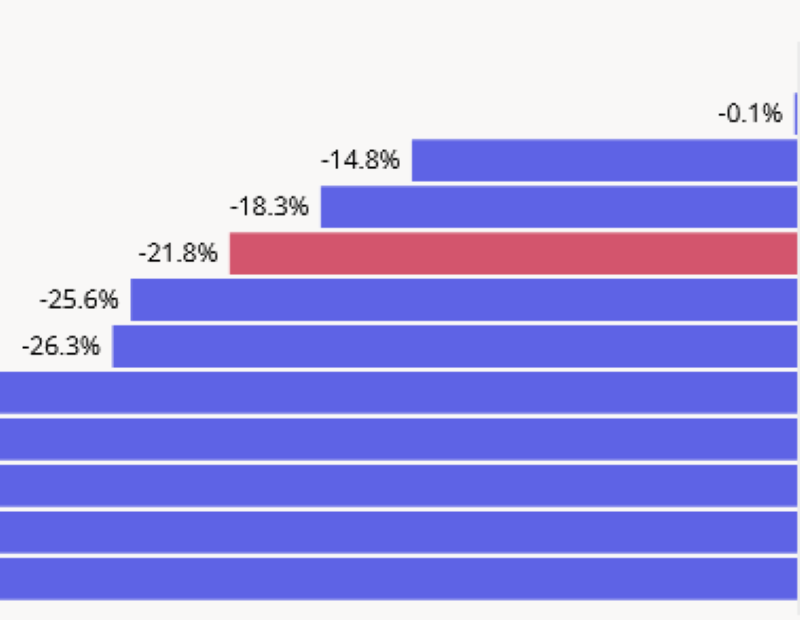Economist’s View: CRE and the Question of Forecasting
Predicting economic trends is as tricky as it is vital to commercial real estate. CPE columnist Hugh Kelly offers insights.
Investors stand on a knife edge. It is ultimately foolish to make investment decisions in the absence of data. But—and this is a huge “but”—all data is about the past. There is no data about the future. The investor therefore must be grounded in facts while at the same time acting upon an understanding of the future, about which there are no certain facts. No wonder recurrently successful decision-makers are paid so handsomely!
For economists, this brings up the humbling topic of forecasting. Baseball players talk about the difficulty in hitting exemplified by the .300 batting average, a standard of quality that still reflects failure 70 percent of the time. Economists (me included) can relate.
This past summer the Nobel Prize winner Paul Krugman contributed a column to the New York Times “I Was Wrong” opinion series about his inaccurate calls in 2021 concerning inflation risk. In 2013, no less an economic maestro than Alan Greenspan penned an essay about the Global Financial Crisis in which he acknowledged that even he “Never Saw It Coming” during his tenure as Federal Reserve chair.
Paul Samuelson, the first American to win the Nobel Prize in Economics. noted in a 1985 address at Trinity University: “The dictum ‘If you must forecast, forecast often,’ is neither a joke nor a confession of impotence … That part of the future that cannot be related to the present’s past is precisely what science cannot hope to capture.”
Weather or not
Here, however, we should be specific about science and forecasting, and how this relates to real estate economics. Let’s look at change, time horizons, and forecasting.
I imagine that most folks associate forecasting with the weather. This is a good and not at all demeaning way of thinking about economic projections. The weather, like the economy, is a complex dynamic system with many interacting variables. And like weather forecasting, economic forecasts are most accurate in the short term where well-understood relationships can be modeled.
For real estate executives, conventional economic forecasts are most useful for tactical decisions in a near-term time horizon. The farther out those forecasts go, the less reliable they become for business planning purposes. Why? Because over time we find a multiplication of secondary effects whose probable interactions become less and less certain. All forecasting involves statistical probabilities. Over time the cumulative probabilities diminish, and their usefulness for business tacticians erodes.
If I might wade into a more controversial topic, the difference between weather and climate science also has its analogue in real estate economics. Climate change is related to longer time horizons and more global conditions. Rising planetary temperature, the accompanying rise in sea level, greater frequency and intensity in cyclonic activity, megadroughts, and other such phenomena encompass and influence what we experience as weather.
Similarly, economists must consider the factors shaping trends in the long term. Demographics heads the list, but the quantity and quality of jobs available, the growing imbalance in incomes domestically and globally, the boons and ills of technology, and the distressing prevalence of political tribalism should be considered. All encompass and influence conventionally regarded economic news such as GDP, interest rates and inflation, world trade and other indicators.
History lessons
For real estate investors, developers, and operators, these longer-run factors are highly important in shaping strategy. Real estate is, for the most part, not a field amenable to a “day trading” approach. Commercial property decisions need to account for performance over the course of business cycles. This requires a studied, indeed a historical, point of view—not as theory, but as a means of considering options for behavior while maintaining flexibility in adapting to short-run challenges.
Real estate, of course, differs from most other assets because of its fixity of location. This makes economic geography of unparalleled interest for forecasting in this asset class. Most economic models prescind from location-related particulars but, as we have seen over time, real estate performance is inextricably linked to place as well as time. Matters such as density, industry agglomeration, city-suburb interaction, and even so-called soft attributes such as culture, recreation, and quality of life mean that macro-level economic forces land with unequal force on local real estate.
In 2022, the scene is rife with economic flux. Inflation, recession, war, disease, and political turbulence are all making for a fraught commercial property market. In considering forecasts, executives might well take counsel from the ancient Greeks, who thought about time in two separate ways. The first was the ordinary procession of events, for which the Greeks used the word chronos. The second was the opportune moment which changes the course of events, called kairos.
Faced with the multivalent future and the range of forecasting of as-yet unknown events, real estate executives understand their place in the dimension of chronos but have the power to shape the future by seizing the moment of kairos. That is how decision-makers truly earn their pay.









You must be logged in to post a comment.